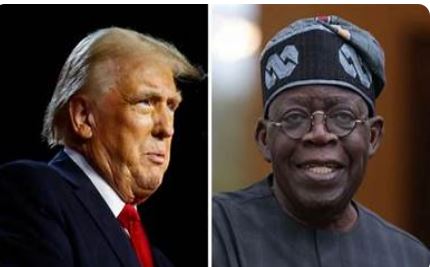
Nigeria reacted furiously to the imposition by United States President, Donald Trump, of 14 per cent tariff on Nigeria’s exports to the USA by “banning” the import of 25 product categories.
In line with his campaign promise to even up with countries “cheating” the US on trade, Trump on April 2, 2025 (which he dubbed America’s “Liberation Day”), imposed categories of tariffs on about 50 countries and the European Union, EU. Countries like Thailand got 36 per cent, Switzerland (31), Malaysia (24), Algeria (30), Angola (32) and Nigeria (14).
Following the catastrophic effects of these tariffs on stock markets which sparked fears of recession, Trump decided to offer 90 days of grace within which all countries that had not taken retaliatory measures against the US would pay 10 per cent pending negotiations. For a country like China which retaliated over the initial 34 per cent tariff with 84 per cent on US imports, Trump jerked its tariff to 125 per cent and ruled that China would not benefit from the 90 days of grace.
In response China enforced import tariffs of 125 percent on US products. Yesterday, it called on the United States to completely cancel its reciprocal tariffs, following Washington’s recent decision to grant exemptions.
But it is a different ball game for Nigeria. Retaliating with outright ban of some US products coming into Nigeria means the country may not benefit from the 90-day waiver. Indeed, the United States Trade Representative, USTR, in Nigeria protested against the ban on an “X” platform post that it would reduce market access for US businesses looking to expand reach in Nigeria.
For clearer insight, the Nigerian Bureau of Statistics, NBS, showed that between 2015 and 2024, the Nigeria-US trade was worth N31trn, with Nigeria enjoying a trade surplus of N1.6trn. Trump imposed extra tariffs on countries that benefited from this type of trade advantage over his country.
Though Nigerian officials have assured that they are negotiating with the US on this trade dispute, we question the rationale behind the ban of categories of US goods imported into Nigeria? If it was an impulsive reaction to the tariffs, we dare say that the officials did not exercise enough prudence, more so as Nigeria is a beneficiary of trade surplus with the US.
Nigeria may not enjoy the 90 days of lowered tariff pending negotiations, and this will hurt our own exporters of goods to the US. We hope this ban will not elicit a further punitive tariff hike by the US.
In particular, it will have a negative effect on the over one million Nigerians in the US and other Africans who have come to love and depend on Nigeria to ship our staple foods to America.
More experienced countries resisted the urge to retaliate Trump’s tariffs because of the effects on their economies. They immediately sent delegations to negotiate. This is the best way forward.
Our government officials should always put the interests of Nigeria first in reacting to change in world affairs.
The post US tariff tango: Let’s negotiate appeared first on Vanguard News.








